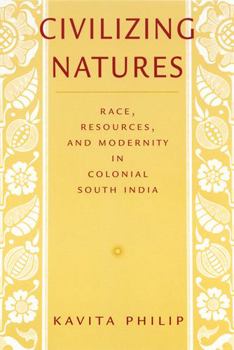Civilizing Natures: Race, Resources, and Modernity in Colonial South India
Select Format
Select Condition 
Book Overview
Science was a central pillar of colonialism, but the converse holds true as well: colonialism profoundly shaped the character of nineteenth-century science. Civilizing Natures unravels unexpected relationships between science, technology, and administrative systems in colonial India from the 1850s to the 1930s, deepening our perspective on continuing conflicts over race, resources, and empire. Botanists, anthropologists, and foresters had their most important sources of data--nature and natives--located at colonial sites. In the hilly, forested regions of Madras Presidency, tribal populations were studied by ethnographers, managed by revenue officials, recruited by plantation contractors, and modernized by missionaries. Racial constructions of nature and modernity helped criminalize and domesticate unruly natives. This is a story about the construction of nature in southern India that is deeply local and irreducibly global. Through detailed case studies, Kavita Philip shows how race and nature are fundamental to understanding colonial modernities. Through its insightful combination of methodologies from both the humanities and the social sciences, Civilizing Natures complicates our understandings of the relationships between science and religion, pre-modern and civilized, environment and society.
Format:Paperback
Language:English
ISBN:0813533619
ISBN13:9780813533612
Release Date:December 2003
Publisher:Rutgers University Press
Length:248 Pages
Weight:0.80 lbs.
Dimensions:0.6" x 5.9" x 9.2"
Customer Reviews
0 rating





